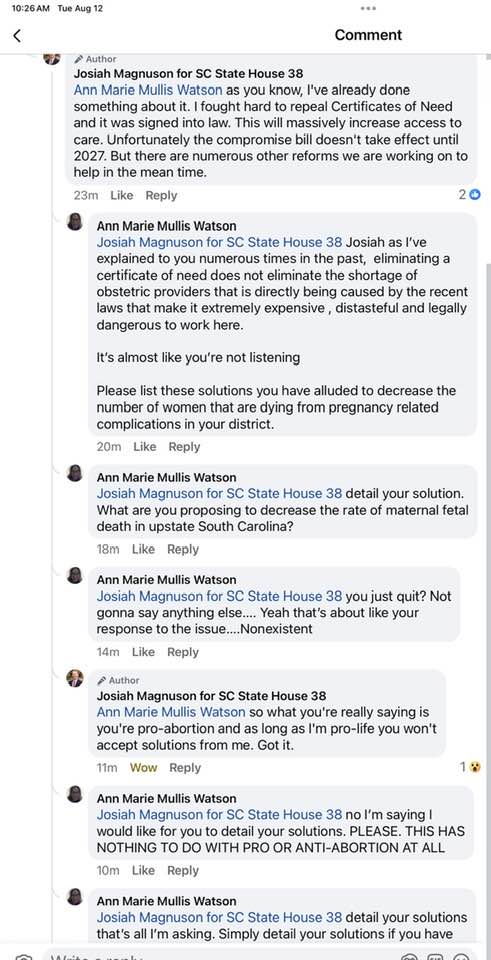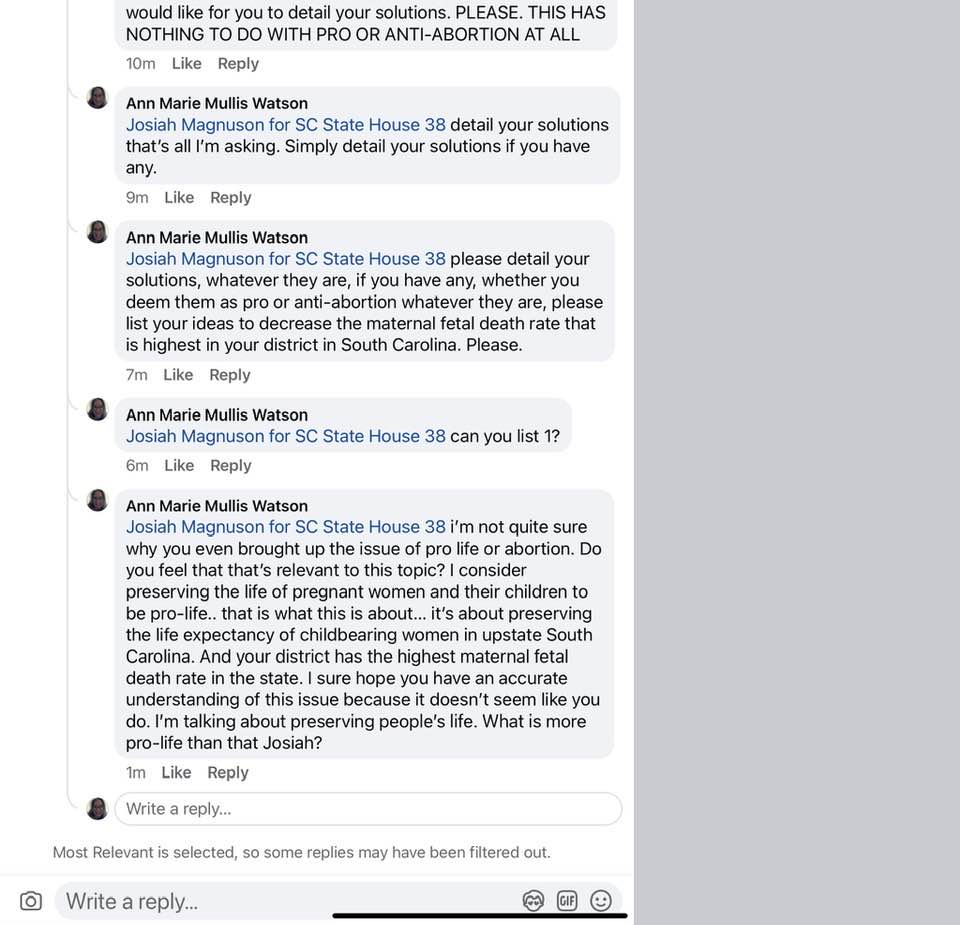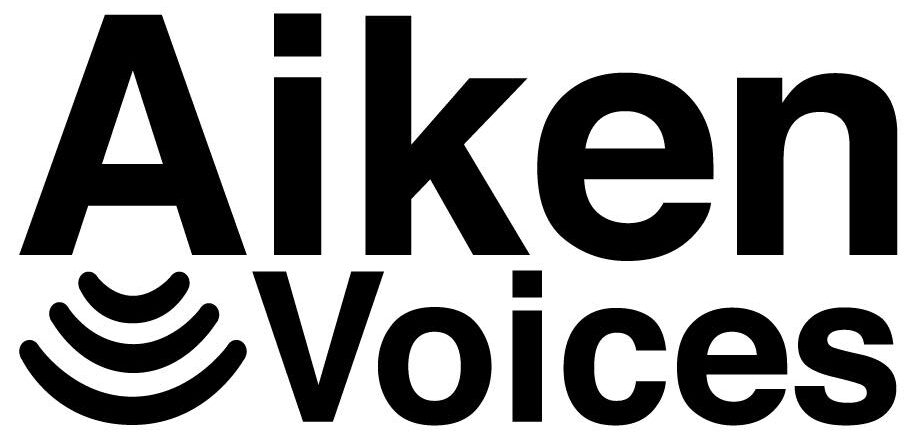Josiah Magnuson’s Attack on Constituent: South Carolina Healthcare Access Under Fire
Josiah Magnuson, representing South Carolina State House District 38, stands at the center of a recent controversy. This involves a constituent’s straightforward request regarding his plans for healthcare. The incident highlights critical issues about political engagement and public service in the Palmetto State.
The constituent, Ann Marie Mullis Watson, sought crucial information. She asked Magnuson to clearly outline his plan for protecting female healthcare access within South Carolina. Her question arose from genuine concern for the well-being of women across the state.
Magnuson’s response to this inquiry was widely described as an “attack.” This reaction raises serious questions about how elected officials treat constituents. It also impacts the wider discussion on healthcare policy in South Carolina.


The Confrontation: When a Question Ignites a Firestorm
Constituent’s Plea for Clarity
Ann Marie Mullis Watson asked a direct question of her representative. She wanted to know Josiah Magnuson’s strategy to safeguard female healthcare access. This includes vital services such as reproductive care and preventative screenings. Such access is important for the health and welfare of countless South Carolinians. Her plea for clarity came from a place of civic responsibility.
Magnuson’s Aggressive Response
Reports detail a strong reaction from Josiah Magnuson. His “attack” against Ann Marie Mullis Watson involved harsh language and a very aggressive tone. This happened during an exchange where a constituent simply sought policy details. Such a response is unusual for an elected official. The specific setting of this interaction fueled public concern about its nature.
Public Reaction and Media Scrutiny
The exchange quickly became public knowledge. Many other constituents shared their surprise and disappointment. Social media platforms buzzed with discussions about the incident. News outlets began to cover the story, bringing more attention to Magnuson’s actions. This swift public reaction showed a widespread demand for respectful political discourse.
South Carolina’s Healthcare Landscape: A Critical Examination
Access to Reproductive Healthcare Services
South Carolina faces challenges in providing wide access to reproductive healthcare. Many women find it hard to get needed services. These services include family planning and maternal care. The state often sees higher rates of unintended pregnancies. Improving this access is a constant, pressing need.
Legislative Impact on Women’s Health
Current laws and proposed bills in South Carolina directly affect women’s health. Some legislation limits access to certain healthcare options. The stance of elected officials, like Magnuson, can greatly shape this legislative path. Their views often dictate what bills pass or fail. This has real impacts on the lives of women statewide.
Constituent Engagement and Representation
Constituents play a vital role in holding their representatives accountable. They should be able to ask questions about policy positions and actions. Elected officials are expected to engage respectfully with the people they serve. Open discourse builds trust between citizens and their government.
Analyzing Magnuson’s Stance on Healthcare
Magnuson’s Stated Positions and Voting Record
Josiah Magnuson has made public statements about healthcare policy. His past comments often reflect views on women’s health access. His voting record in the South Carolina State House shows a pattern. These votes reveal his approach to critical healthcare legislation. They give insight into his priorities for the state.
The Disconnect Between Constituent Needs and Representation
Magnuson’s reaction starkly contrasts with the needs of constituents like Ann Marie Mullis Watson. Her question highlighted a broad concern for female healthcare access. This incident may point to a larger problem in South Carolina politics. It suggests a gap between what citizens need and how their representatives respond. Responsive representation is key to good governance.
The Broader Implications for South Carolina
Deterring Constituent Participation
Aggressive responses from elected officials can have a chilling effect. Constituents might feel afraid to raise important questions or voice concerns. This can discourage active participation in local government. A strong democracy depends on citizens feeling safe to speak their minds. Such incidents erode public trust and engagement.
The Future of Healthcare Access Debate
This incident could change how healthcare access is discussed in South Carolina. It shines a light on the need for respectful dialogue. Open conversations are essential for shaping sound policy. Leaders must engage with their communities on critical health issues. Policy-making benefits from diverse viewpoints.
Conclusion: Accountability and the Path Forward
Ann Marie Mullis Watson’s simple request highlighted a key conflict in South Carolina politics. Her inquiry about female healthcare access was both legitimate and important. Josiah Magnuson’s response carries significant implications for constituent rights. Such actions can weaken the very foundations of democratic discourse. Elected officials must engage constructively with their constituents. This is vital for addressing complex issues like healthcare access.
As of this writing, Magnuson has yet to apologize or answer the questions posed to him. We will update this story as more information becomes available.
